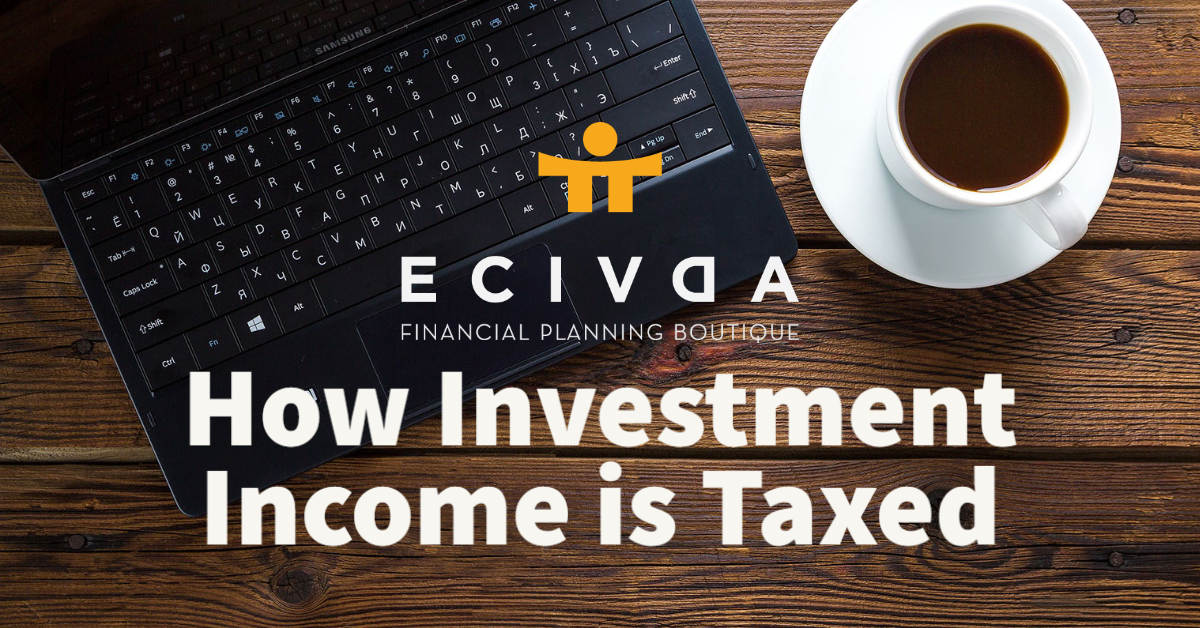Investment Income and Income Tax
Investments can deliver a major source of income and tax implications for individuals. Each major type of investment income is subject to special tax treatment.
Understanding how your investments are taxed is an important consideration for investment planning since after-tax yield is more important than gross returns. The most common types of income most investors will receive are interest, dividends, and capital gains.
Inside a registered account, like an RRSP or TFSA, these earnings are not taxed. The total withdrawal from an RRSP is subject to income tax, while TFSA withdrawals are not. For investment income that is subject to tax when it is earned, the effective income tax rate can vary widely for an individual.
What You Need to Know
Interest Income
Interest income refers to the compensation an individual receives from making funds available to another party. Interest income is earned most commonly on fixed income securities, such as bonds and Guaranteed Income Certificates (GIC). It is taxed at your marginal tax rate without any preferential tax treatment and is taxed annually whether or not it has been withdrawn from the investment.
Example:
An investor buys a 10-year GIC that has agreed to pay him 4% annually. If the investor bought the GIC for $100, the contract stipulates that they will earn $4 of interest each year for the next 10 years. The investor must report the $4 of interest income on their income tax return each of those 10 years.
Since interest income is reported as regular income, like employment income, it is the least favourable way to earn investment income if it is subject to income tax. Typically, GICs offer relatively less risk than other investments to compensate for lower gross and after-tax returns.
Dividend Income
Dividend income is considered property income. A dividend is generally a distribution of corporate profit that has been divided among the corporation’s shareholders. The Canadian government gives preferential tax treatment to Canadian Controlled Public Corporations (CCPC) in the form of a dividend income gross up and Dividend Tax Credit (DTC).
Taxpayers who receive eligible dividends are subject to a 38% dividend income gross up, which is then offset by a federal DTC worth 15.02% of the total grossed up amount.
Example:
A shareholder of a Canadian Controlled Public Corporation is paid a dividend of $100. This income is an eligible dividend and is subject to the gross up and the DTC. The dividend would be grossed up 38%, so the income is now considered to be $138. The DTC would be 15.02% of $138, the grossed-up amount, equaling $20.73. Therefore, the shareholder would report a dividend income of $138, but would have their federal taxes reduced by $20.73.
The rationale for the gross up and DTC is related to the fact that dividends are paid in after-tax corporate earnings. If there were no adjustments to the dividend, it would result in the dollars being double taxed. This tax treatment makes dividends a more tax efficient way to receive income than interest income. Tax is payable when the dividends are paid out.
Different rules apply for dividends derived from non-Canadian and private corporations and can offer different tax treatment and advantages when professional tax expertise is employed.
Capital Gains
Capital gains are realized on equity investments (such as stocks) that appreciate. For example, if an investor bought a stock at $6 per share and sold at $10 per share, they would have earned a capital gain of $4. In Canada, only 50% of a capital gain is subject to income tax. In this example only $2 of the gain would be taxed. Another desirable trait of capital gains income is that tax is not due until the investment is sold or deemed to have been sold. This provides the investor with a measure of control over the timing of taxes. Whether or not they are the most tax efficient income depends on your province of residence and subsequent tax rates.
The Bottom Line
It is important to ensure that investors understand their tax situation and the implications that different types of investment income can have on future taxes.
Financial, retirement and income planning should include the anticipated tax obligations at both the federal and provincial level. Ensuring an investor’s expert advisors understand overall objectives, risk tolerance and retirement timing can allow them to maximize after tax returns.

